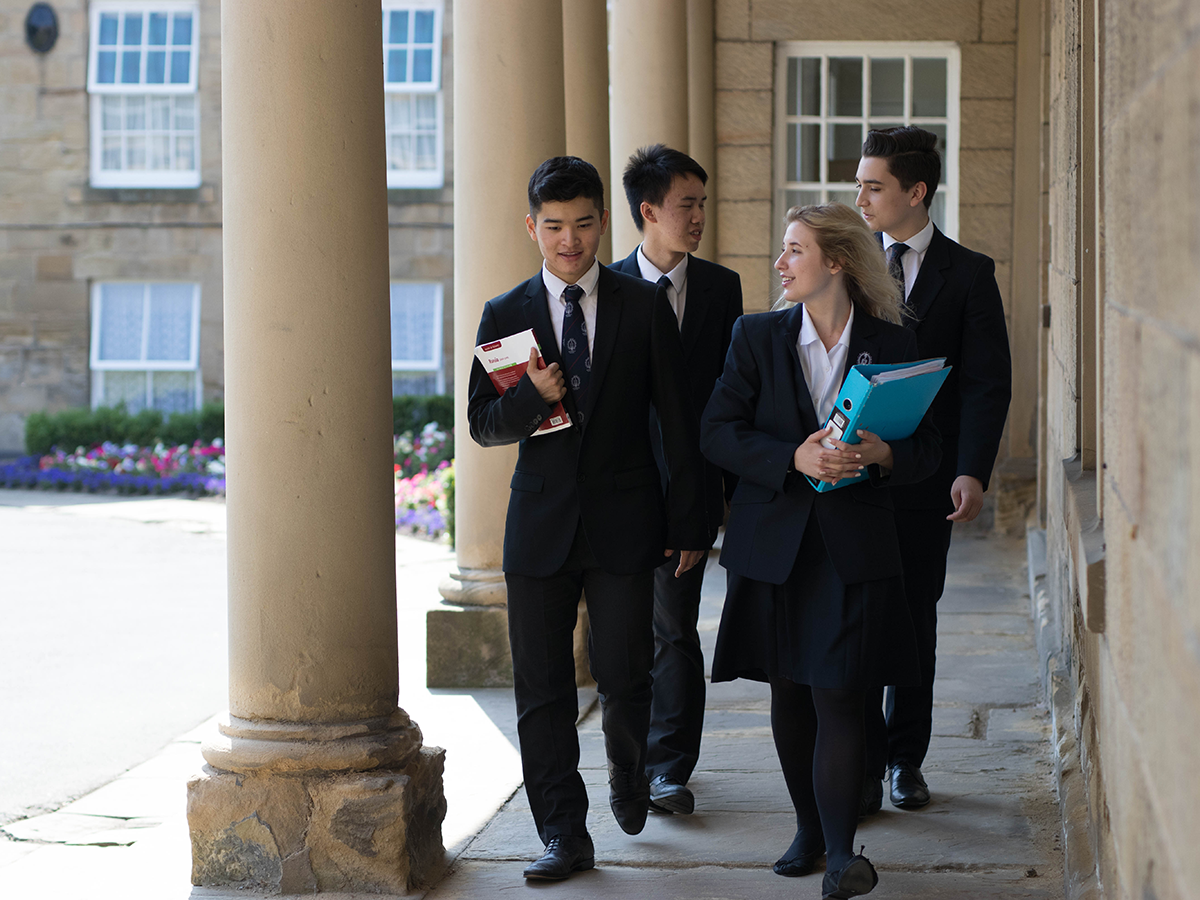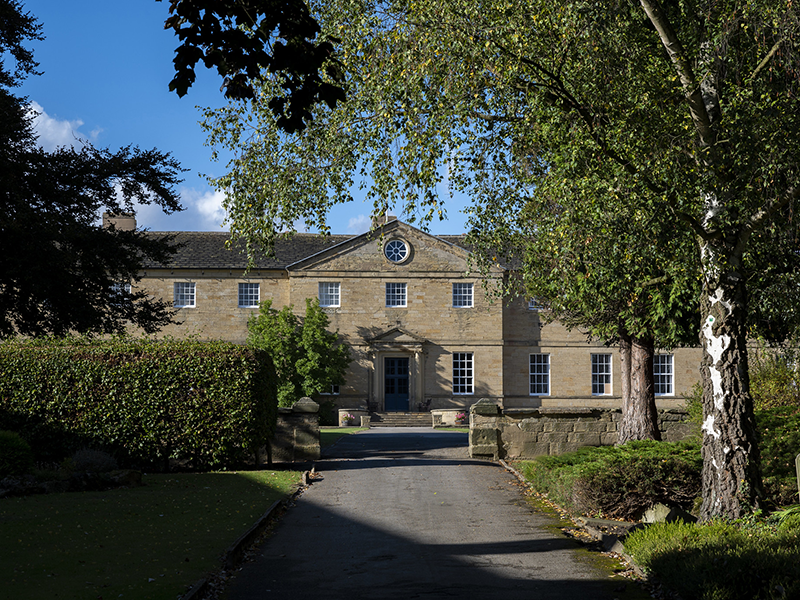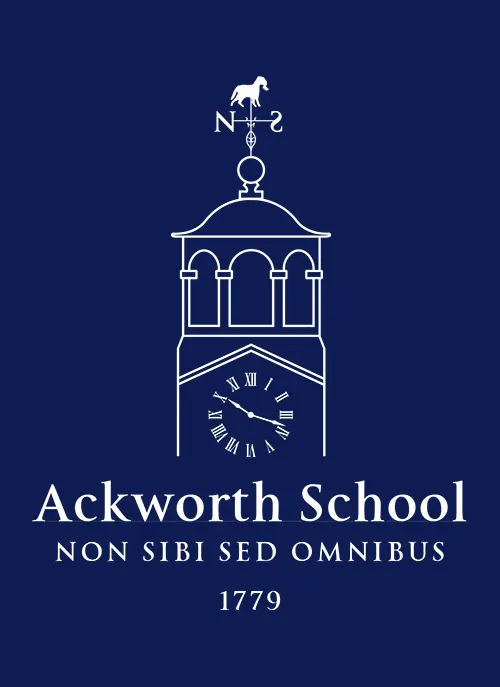


GCSE/A-Level Maths
“If you shuffle a deck of cards, it’s more than likely that the order of the cards you get has never been seen before in the history of the universe – there are more ways to arrange the deck than there are atoms in our galaxy.”
Why study Maths at GCSE/A-Level at Ackworth School?:
Mathematics is a beautiful, creative and ever evolving discipline, that has played a critical role throughout human history. It is the language of the universe, the bridge between the arts and the sciences, proving itself to be indispensable in everyday life and is fundamental to a wide range of fields and industries. Therefore, a strong mathematics education lays the foundation for understanding the world. The mathematics curriculum at Ackworth School aims to provide students with a solid foundation in mathematical concepts and skills, and is designed to be inclusive, ensuring that all students have the opportunity to succeed in mathematics, regardless of their background or needs.
“Mathematics knows no races or geographic boundaries; for mathematics, the cultural world is one country.”
— David Hilbert, German mathematician
Department Staff: Emma Garland, Rebecca Nicholson, Dale Beswick, Richard Izdebski
Courses:
International GCSE Mathematics
Exam Board: Pearson Edexcel
Syllabus code: 4MA1
Course content: The Pearson Edexcel International GCSE in Mathematics (Specification A) qualification enables students to deepen their knowledge and understanding of mathematical concepts and techniques across the key areas of number; algebra; geometry; and statistics. Students will develop their problem-solving and reasoning skills by translating problems in mathematical and non-mathematical contexts; by presenting arguments and proofs; and by making deductions and drawing conclusions from mathematical information.
It is assessed through two 2 hour examinations at the end of the course.
A Level Mathematics
Exam Board: Pearson Edexcel
Syllabus code: 9MA0
Course content: A Level Mathematics extends and deepens the knowledge acquired at GCSE level, and emphasises how mathematical ideas are interconnected and can be applied to modelling real life situations. Students will learn how to make sense of data, how the physical world works and how to solve problems in a variety of contexts.
The course has three overarching themes – mathematical argument, language and proof; problem solving; and modelling. The content is then split into the following three strands:
- Pure mathematics – proof, algebra, functions, graphs, coordinate geometry, sequences and series, trigonometry, exponentials and logarithms, calculus, numerical methods, and vectors.
- Mechanics – kinematics, projectiles, forces, Newton’s laws of motion, and moments.
- Statistics – includes working with data from a sample to make inferences about a population, probability, probability distributions, and hypothesis testing.
Many degree courses list A Level Mathematics as a highly desirable, if not essential, subject to study – Accounting, Computing, Economics, Engineering, Medicine, Physics, Statistics, Teaching, and Veterinary Science, to name but a few.
It is assessed through three 2 hour examinations at the end of the course.
A Level Further Mathematics
Exam Board: Pearson Edexcel
Syllabus code: 9FM0
Course content: As well as building on the knowledge introduced in Mathematics A Level, Further Mathematics introduces you to the concepts of complex numbers and matrices, which have wide applications in mathematics, engineering, and computing.
There is a little more flexibility compared to standard Mathematics, with three routes through the course. Each route contains the mandatory Core Pure content and alongside this, students choose whether to major in Mechanics or Statistics and study a minor option, which gives greater depth of knowledge, or study three minor options, to gain greater breadth.
The minor options are: Mechanics Minor; Statistics Minor; Modelling with Algorithms; Numerical Methods; Extra Pure; and Further Pure with Technology.
The Core Pure, Mechanics, and Statistics content is covered within lessons, and students can choose to study any of the other options independently.
Further Mathematics prepares students for further study and employment in a wide range of disciplines. Many degree courses list A Level Further Mathematics as a desirable subject to study – Accounting, Computing, Economics, Engineering, Medicine, Physics, Statistics, Teaching, and Veterinary Science, to name but a few, and it is fast becoming a core requirement for many courses with a high mathematical content.
The course is assessed through several examinations at the end of the course, with the number dependent on the route taken.
“At Ackworth, mathematics gives Sixth-Form students a sense of freedom. When a classroom is available without any classes, you can sit and practice questions. The Maths Department office is always open for you to drop by and get your solutions… and because there are five teachers with diverse skill sets, they can always find answers to your challenges. Additionally, drop-in support sessions are available during lunch and after school too.”

